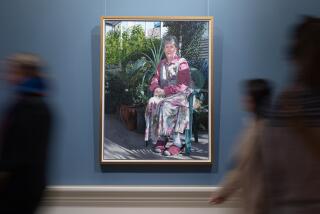Dead-Ends, Red Tape Mark One Birth Mother’s Search for Son : Adoptions: Though such information is limited, a healing group offers relief and an agency supplies an unusually detailed report.
- Share via
Barbara Montgomery’s son was born May 7, 1965, in Washington, D.C. She was 19, single, broke and petrified. How could she give this boy she named Michael Joseph the kind of life he deserved?
“I had no money and was sharing a roach-infested efficiency studio in a dangerous neighborhood in the middle of the Martin Luther King riots,” Montgomery said recently.
She was engaged to the child’s father, a man she’d been dating steadily. But he was starting school at the Massachusetts Institute of Technology in Boston and had a bright future as an electrical engineer in mind.
“I saw him only once after the birth. He was cheery, curious, glad it was all over,” Montgomery recalled. “He asked if the boy looked like him. And I said, ‘No! No!’ It was so painful. I wanted nothing to do with him. I never saw him again.”
The nuns at St. Ann’s Infant and Maternity Home in Hyattsville, Md., told the young mother that adoption would be best. “They told me it would be selfish to keep him.” So she signed the papers.
Montgomery didn’t know she was also signing away a huge chunk of her life. Nothing would be the same in the years to come. Something had frozen inside her. Only lately has the pit in her stomach begun to thaw.
“Every May 7 since 1965, I’ve thought about this child. For 27 years I’ve seen a baby in my mind, a baby who is now a man,” said Montgomery, who today lives in Norwalk, Conn.
“I was told that I’d forget the experience, that I’d have other children and go on with life. What happened is I’ve never had other children and I’ve never forgotten the experience.”
Work became her world; 16-hour days the norm. Though she was married once to a man she liked very much, he was not a soulmate. She felt increasingly withdrawn, disembodied. Her drinking grew heavier, her life lonelier.
“In 1985, my company went into bankruptcy and this depression that I’d always battled surfaced in full force,” said Montgomery, who was a top-level executive in the transportation industry.
In 1986, alcoholism and depression collided. She had a brain seizure, and finally set about finding help. Working with Alcoholics Anonymous, she sobered up and saw that “the core of it all was this adoption. There was always something missing.”
She found, if not the missing piece, then at least some sense of comfort the day she stepped into a meeting of Adoption Healing, a Fairfield, Conn., group for birth parents, adopted children and adoptive parents.
“Within five minutes, I knew what I needed,” said Montgomery, tears shining in her clear-blue eyes. “I needed to find my son. I didn’t want to give him up for adoption. I never wanted to sign that paper.”
She wants her son to know this, or at least have the chance to find out.
Because adoption records in the United States are closed to birth parents and adoptees alike, only limited information usually can be attained--often at the whim of hospital or social service agency clerks.
It was a windfall when Catholic Charities, the agency that arranged her son’s adoption, recently replied to a request for non-identifying information with an unusually detailed report. It was a start, and a tremendous relief.
“I was so glad just to know he was with a good family, educated people, the kind of family they told me he’d have,” Montgomery said.
More to Read
Sign up for Essential California
The most important California stories and recommendations in your inbox every morning.
You may occasionally receive promotional content from the Los Angeles Times.













